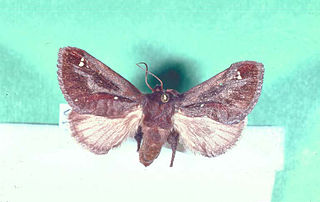
Acharia is a genus of moths in the family Limacodidae.

Cisthene is a genus of lichen moths in the family Erebidae. The genus was erected by Francis Walker in 1854.

Leucanopsis is a genus of moths in the family Erebidae. The genus was described by Alfredo Rei do Régo Barros in 1956.
Paracles is a genus of moths in the subfamily Arctiinae. The genus was described by Francis Walker in 1855. The species range from Panama to Patagonia, with quite a few in the southern temperate region of South America.

Aulacodes is a genus of moths of the family Crambidae. The genus was first described by Achille Guenée in 1854.
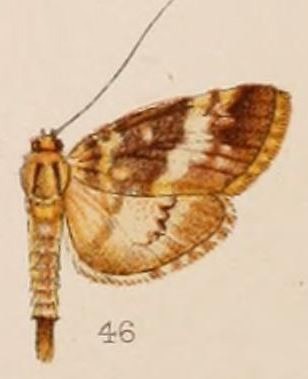
Lygropia is a genus of snout moths in the subfamily Spilomelinae of the family Crambidae. It currently comprises 66 species, which are mostly found in the tropical and subtropical regions of the Americas, Africa and Asia, but not in Australia.
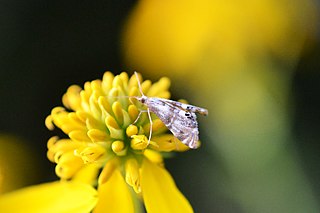
Petrophila is a genus of moths of the family Crambidae. The genus was described by Lansdown Guilding in 1830.
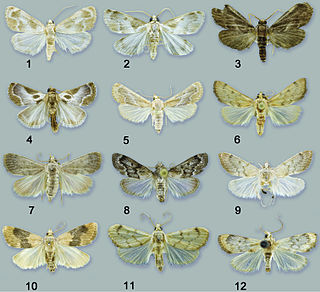
Schacontia is a genus of moths of the family Crambidae described by Harrison Gray Dyar Jr. in 1914.
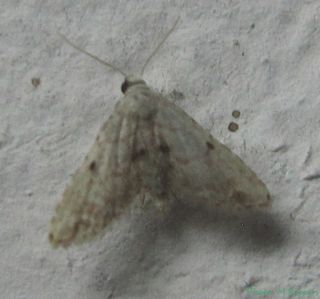
Araeopteron is a genus of moths of the family Erebidae. The genus was erected by George Hampson in 1893.

Bagisara is a genus of moths of the monotypic subfamily Bagisarinae of the family Noctuidae. It is found mainly in North America and the Amazon rainforest.
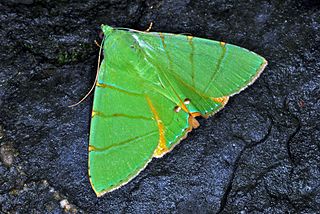
Eulepidotis is a genus of moths of the family Erebidae erected by Jacob Hübner in 1823.

Hypotrix is a genus of moths of the family Noctuidae.
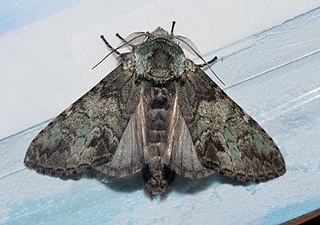
Macrurocampa is a genus of moths of the family Notodontidae erected by Harrison Gray Dyar Jr. in 1893. They are found primarily in North America.

Heterocampa is a genus of prominent moths in the family Notodontidae. There are about 18 described species in Heterocampa, found in North, Central, and South America.

Schizura is a genus of prominent moths in the family Notodontidae. There are about eight described species in Schizura.
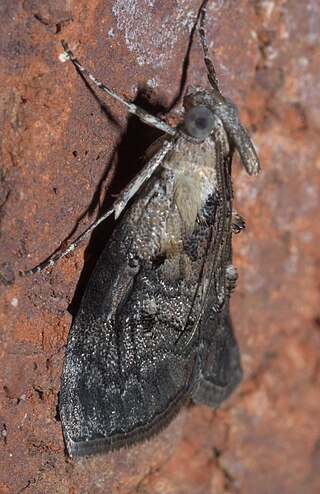
Pococera is a genus of snout moths in the subfamily Epipaschiinae, found mainly in North and Central America. It was described by Philipp Christoph Zeller in 1848.
Thelosia is a genus of moths of the family Apatelodidae. It was first described in 1896 by William Schaus, containing at the time three species: Thelosia phalaena, T. camina and T. truvena. Since then, several additional species have been described.

Acraga is a genus of moths of the family Dalceridae.

Heterocampinae is a subfamily of prominent moths in the family Notodontidae. There are at least 60 described species of Heterocampinae in North America.

Lacosoma is a genus of sack-bearer moths in the family Mimallonidae. There are at least 30 described species in Lacosoma.















